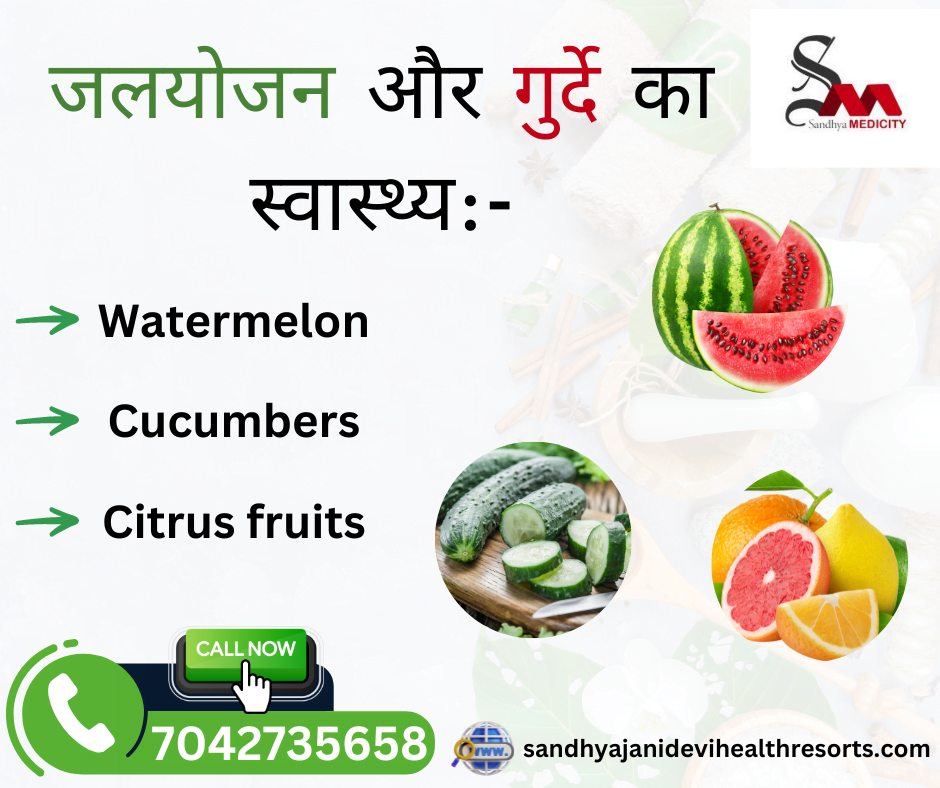We have an important topic to discuss, focusing on a frequently asked question: “Which foods help repair Kidneys health is important to overall health, we’ll explore dietary choices that can support kidney health and potentially aid in their repair.
Understanding kidney health
It is essential to have a basic understanding of kidney function. The kidneys play an important role in filtering waste products, controlling blood pressure, balancing electrolytes, and even producing red blood cells. When the kidneys get damaged or if their function gets impaired, it can lead to various complications.

Hydration and kidney health
Hydration is important for optimal kidney function. Water is important for flushing out toxins and preventing a build-up of waste products in the kidneys. It is recommended to drink at least eight glasses of water daily. Additionally, adding hydrating foods such as watermelon, cucumbers and citrus fruits to your diet can provide a refreshing source of hydration while supporting kidney health.
Antioxidant Powerhouse
Antioxidants play an important role in protecting the kidneys from oxidative stress, which can lead to kidney damage. Including antioxidant-rich foods can prove to be extremely beneficial for kidney health.
Blueberries, cranberries and pomegranates are excellent sources of antioxidants that may help repair the kidneys and reduce inflammation in the kidney system.
Incorporate healthy fats
Contrary to popular belief, not all fats are bad for kidney health. Including healthy fats in your diet can provide essential nutrients and aid in kidney repair.
Foods such as fatty fish, avocados and olive oil contain omega-3 fatty acids and monounsaturated fats, which promote heart health and reduce inflammation, which indirectly benefits the kidneys.
The power of leafy greens
Leafy vegetables are nutritional powerhouses and should be an integral part of any kidney-friendly diet. Spinach, kale and Swiss chard are rich in minerals and vitamins, including magnesium, which may help prevent kidney stones from forming.
These greens also provide antioxidants and fiber, which aid in the elimination of waste products from the body.
Managing protein intake
Proper protein management is important for kidney health, especially if you already have kidney problems. Consuming excessive amounts of protein can put pressure on the kidneys.
However, choosing high-quality protein sources, such as lean meat, poultry, fish and plant-based proteins such as tofu and legumes, can provide essential amino acids without putting too much strain on the kidneys.
Reducing sodium intake
Sodium, which is commonly found in table salt and processed foods, can exacerbate kidney problems and contribute to high blood pressure. Reducing sodium intake helps lower blood pressure and supports optimal kidney health.
Choosing fresh, whole foods and flavoring food with herbs and spices instead of salt can make a significant difference in protecting your kidneys.
Garlic magic
Garlic not only adds flavor to your food but also has many health benefits for your kidneys. Garlic contains compounds that reduce inflammation and oxidative stress in the kidneys.
Adding garlic to your cooking or eating it raw can be an effective way to help with kidney health.
Whole Grains and Kidney Health
Whole grains, such as brown rice and quinoa, provide a wealth of nutrients while offering a low-impact carbohydrate source.
These grains contain fiber, antioxidants, and important minerals like magnesium and phosphorus, which are essential for kidney health. Including whole grains instead of refined grains can have a positive effect on kidney repair.
Limiting phosphorus and potassium
Individuals with kidney complications often need to limit their intake of phosphorus and potassium. High levels of these minerals can be harmful to kidney function.
Foods such as dairy products, nuts, beans and bananas contain significant amounts of these minerals. By monitoring your intake and working with a health care professional, you can ensure a balanced diet that supports kidney health.
Conclusion:-
Maintaining proper kidney health is important, and making informed dietary choices can help repair and support these vital organs.
Remember to stay hydrated, include antioxidant-rich foods, include healthy fats, enjoy leafy vegetables, moderate protein intake, reduce sodium, savor garlic, choose whole grains and phosphorus and We hope you found this information valuable and informative.


